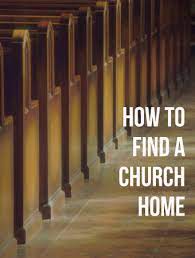
Choosing the right local church is an important decision that can significantly impact your spiritual journey and community life. Whether you’re new to the area, seeking a fresh start, or simply looking to deepen your faith, finding a church that aligns with your values and beliefs can foster growth, connection, and purpose. Here’s a comprehensive guide to help you navigate the process of finding a suitable local church.
Other Resources Available:
- FaithAnswersPress.net: Grow in your faith and share your hope with others. Find biblical answers about the Christian faith. VISIT THE SITE NOW
- Download the FAQs of Faith app for easy access to Faith Answers Press LLC websites, answers to spiritual FAQs, and a daily faith-boosting podcast. DOWNLOAD NOW
1. Identify Your Priorities
Before you begin your search, it’s essential to identify what you value most in a church. Consider the following questions:
– Doctrinal Beliefs: What are your core theological beliefs? Are there specific doctrines that are non-negotiable for you? (Review this Quick Guide to Christian Denominations and The Key Differences of the 7 Main Denominations). Our companion website, FaithAnswers Press, also describes fundamental doctrines and common misunderstandings of the Christian Faith (Click here).
– Worship Style: Do you prefer traditional hymns, contemporary worship, or a blend of styles?
– Community Involvement: Are you looking for a church that emphasizes outreach and service to the community?
2. Research Local Options
Once you have a clear idea of your priorities, start researching local churches in your area. Here are some ways to find options:
– Online Searches: Use search engines and social media to explore local churches. Websites often provide information about beliefs, service times, and special events. Look for the signs of a healthy church.
– Denominational Websites: If you have a Christian denominational preference (e.g., Baptist, Methodist, Presbyterian), visit their official websites to find churches affiliated with them.
– Community Recommendations: Ask friends, family, or coworkers for recommendations based on their experiences in local churches.
3. Develop a Checklist
As you narrow down your options, create a checklist of essential criteria to evaluate each church. Consider including the following items:
– Doctrinal Alignment: Ensure the church’s beliefs align with your core values.
– Worship Experience: Visit services to gauge the worship style and overall atmosphere.
– Teaching and Preaching: Determine if the messages and teachings resonate with you and prioritize biblical content.
– Community and Fellowship: Look for opportunities to connect with other members, such as small groups or social events.
– Children and Youth Programs: If applicable, check the availability and quality of children’s and youth ministries.
4. Visit in Person
Once you’ve done your research and created a shortlist of potential churches, it’s time to visit them. Here are some tips for making the most of your visits:
– Attend a Service: Go on a Sunday or during the designated worship time. Take note of the worship style, teaching, and how the church engages with its members.
– Explore the Environment: Observe the atmosphere of the church. Is it welcoming? Are members friendly and open to newcomers?
– Engage with Leadership: Don’t hesitate to introduce yourself to the pastor and other church leaders. Ask questions about the church’s mission, programs, and involvement in the community.
5. Connect with Others
Building relationships is a crucial aspect of finding a church home. Consider the following:
– Join a Small Group: Many churches offer small group ministries to foster deeper connections. Participating in a small group can help you connect with other members and build friendships.
– Volunteer Opportunities: Look for ways to get involved in service projects or church events. Serving alongside others can help you form strong bonds with fellow attendees.
6. Reflect on Your Experience
After visiting a few churches, take some time to reflect on your experiences. Consider the following questions:
– Do You Feel Led?: Did you feel a sense of belonging and spiritual growth in any particular church?
– Are Your Values Supported?: Does the church’s mission and values align with your own?
– Can You Envision Being a Part of This Community?: Do you see yourself participating actively in the life of the church?
7. Make a Decision
Choosing a church is a personal decision, and it’s important to take your time in finding the right fit. Pray for guidance and clarity as you consider where to get involved. Remember, there is no rush—finding a church that feels like home is worth the effort.
Conclusion
Finding the right local church can greatly enhance your spiritual journey and provide a sense of community and support in your life. By identifying your priorities, researching options, and engaging with different congregations, you’ll be equipped to make an informed decision. Trust that God will guide you to a church where you can grow spiritually, establish meaningful relationships, and serve others. Happy church hunting!